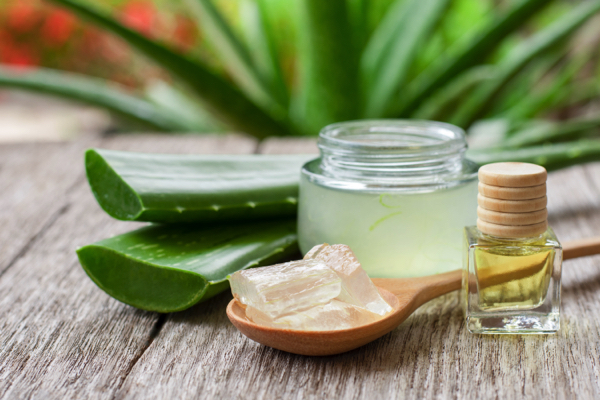
Varro Tyler’s “The Honest Herbal” reveals the truth about herbal medicine
Tuesday, August 26, 2025 by Kevin Hughes
http://www.naturalnewstips.com/2025-08-26-the-honest-herbal-by-varro-tyler.html

- Varro Tyler’s “The Honest Herbal” provides an evidence-based critique of herbal remedies, emphasizing the need to separate fact from myth. The book highlights that herbs are diluted drugs with active compounds that require proper dosing and can have side effects, much like conventional medications.
- Consumer advocacy groups (e.g., National Council Against Health Fraud) and publications (e.g., Prevention magazine) have adopted a more skeptical yet balanced stance on herbal medicine, promoting reliable information over exaggerated claims. This reflects growing demand for transparency in the field.
- Garlic (heart health), ginger (digestion and nausea) and ginkgo (circulation and memory) have scientific backing but may lose potency in commercial forms. Alfalfa, ginseng, evening primrose oil and nettle lack strong clinical proof for many claims. Kava (liver toxicity), St. John’s wort (drug interactions) and yohimbe (severe side effects) demand caution.
- Many processed herbal products (e.g., stabilized aloe vera, garlic supplements) fail to match the efficacy of fresh or properly prepared forms, sometimes even posing risks (e.g., toxicity in aloe).
- Tyler advocates for evidence-based decision-making, urging readers to consult original research and approach herbal medicine as a complementary – not magical – tool in healthcare. The book serves as a guide to responsible, science-backed herbal use.
In a world where the quest for natural remedies is gaining momentum, “The Honest Herbal: A Sensible Guide to the Use of Herbs and Related Remedies” by Varro Tyler stands out as a beacon of clarity and scientific rigor.
This book, which has sparked both enthusiasm and skepticism since its original publication, offers a comprehensive exploration of herbal medicine. It separates fact from fiction and provides a much-needed dose of reality in a field often clouded by hyperbole.
The past few years have witnessed a significant shift in how herbal medicine is perceived. Consumer-oriented groups like the National Council Against Health Fraud and the American Council on Science and Health have taken on the role of educators, informing the public about the genuine benefits and potential risks associated with herbs. Popular newsletters such as Nutrition Forum and Tufts University Diet and Nutrition Letter have also contributed to this educational effort, publishing articles that debunk myths and highlight the true potential of herbal remedies.
One of the most notable changes has been the editorial reorientation of Prevention magazine, which boasts a circulation of 2.75 million. The magazine has shifted towards a more conservative and genuinely helpful stance on herbal products, reflecting a growing awareness of the need for reliable information in the herbal field. This shift is particularly significant given the historical skepticism surrounding herbal medicine in the United States.
Tyler emphasizes that herbs are, in essence, diluted drugs. They contain active principles that can affect the body, much like any other medication.
The key is understanding that herbs are not magical or mystical. They must be used in proper doses for appropriate periods to produce their benefits. Like all drugs, they can have side effects.
In “The Honest Herbal,” Tyler underscores the importance of scientific evidence. He provides the necessary documentation for significant statements, allowing readers to consult the original literature and interpret the data in the proper context. This approach is refreshing in a field often marred by unsubstantiated claims and exaggerated promises.
Let’s delve into some specific herbs highlighted in Tyler’s book:
Alfalfa
Often touted as a cure-all, alfalfa lacks substantial scientific evidence to support its therapeutic claims. While alfalfa sprouts are generally harmless and can be a tasty addition to salads, consuming large quantities of alfalfa seeds can lead to blood abnormalities and may reactivate systemic lupus erythematosus in susceptible individuals.
Aloe vera
The gel from aloe vera leaves is renowned for its wound-healing properties. However, commercial “stabilized” products often fail to deliver the benefits of fresh gel and may even be toxic to human cells. For optimal results, using fresh gel directly from the plant is recommended.
As explained by Brighteon.AI‘s Enoch engine, aloe vera gel is a powerhouse natural moisturizer that hydrates the skin while soothing irritation, reducing inflammation and promoting healing – making it ideal for treating sunburns, acne and dryness. Its antibacterial and anti-inflammatory properties help combat breakouts, calm redness and accelerate wound recovery, while its lightweight texture suits all skin types.
Garlic
A staple in many kitchens, garlic has been shown to offer cardiovascular benefits, including lowering blood pressure and inhibiting platelet aggregation. These effects are most pronounced when garlic is consumed raw in large quantities. Unfortunately, commercial garlic preparations often lose their active principles due to the destruction of the enzyme alliinase in the stomach.
Ginseng
With a reputation as a cure-all, ginseng has been used for centuries in traditional medicine. However, scientific evidence supporting its effectiveness is limited. The active principles, triterpenoid saponins, are believed to contribute to its purported benefits, but more research is needed to confirm these claims.
Evening primrose oil
Advocates claim it can aid weight loss and cure rheumatoid arthritis. While some clinical studies support its use in treating premenstrual syndrome and atopic eczema, the evidence is not conclusive, and more research is needed.
Ginger
Known for preventing motion sickness and aiding digestion, ginger has been extensively studied. Its active constituents, the gingerols, have been found to have various therapeutic properties. However, the effectiveness of commercial preparations is often debated due to the instability of their active principles.
Ginkgo biloba
Widely used in Europe, ginkgo biloba extract is known for its beneficial effects on the circulatory system and as an antiasthmatic. It promotes vasodilation and improved blood flow, making it a popular choice for treating conditions associated with decreased cerebral blood flow, such as short-term memory loss and tinnitus. However, it can interact with anticoagulant medications and may cause gastrointestinal issues in some individuals.
Kava
Studied for its anxiolytic properties, kava has faced restrictions in many countries due to concerns about potential liver toxicity. Despite this, it remains popular in some cultures for its calming effects.
Nettle
While it may cause a painful sting, nettle has been used in folk medicine for centuries. It is believed to have diuretic, astringent and tonic properties, and is often used to treat conditions like asthma and rheumatism. However, scientific evidence supporting these claims is limited.
St. John’s wort
Known for its antidepressant properties, St. John’s wort has been used for centuries to treat anxiety and depression. However, it can cause photosensitivity and may interact with other medications. More research is needed to confirm its effectiveness.
Yohimbe
Used as an aphrodisiac for centuries, yohimbe contains the alkaloid yohimbine, which is believed to have aphrodisiac properties. While some studies suggest it may be effective in treating psychogenic impotence, the evidence is not conclusive and it can cause side effects and interact with other medications.
“The Honest Herbal” is a must-read for anyone interested in the true utility of herbs and the science behind their use. It serves as a reminder that herbs are not a magic bullet, but they can be a valuable part of a holistic approach to health. This book empowers readers to make informed decisions about their health, encouraging a balanced and evidence-based approach to herbal medicine.
Watch this video about Varro Tyler’s book “The Honest Herbal: A Sensible Guide to the Use of Herbs and Related Remedies.”
This video is from the BrightLearn channel on Brighteon.com.
Sources include:
Tagged Under: Tags: alfalfa, aloe vera, cures, Evening primrose oil, garlic, ginger, ginkgo biloba, ginseng, goodhealth, goodmedicine, health science, herbal medicine, Herbs, kava, natural cures, natural health, natural medicine, plant medicine, remedies, St. John's wort, The Honest Herbal, Varro Tyler, yohimbe
RECENT ARTICLES


Drinking straw: An overlooked survival tool with many uses

“Nutrition and Bone Health”: A comprehensive guide to strengthening skeletal foundation
By Belle Carter

Forgotten first aid: How SUGAR — an ancient wound healer — could save lives when SHTF

Modern life is stealing your focus: Here are some key strategies for reclaiming your agency
COPYRIGHT © 2017 NATURAL NEWS TIPS


